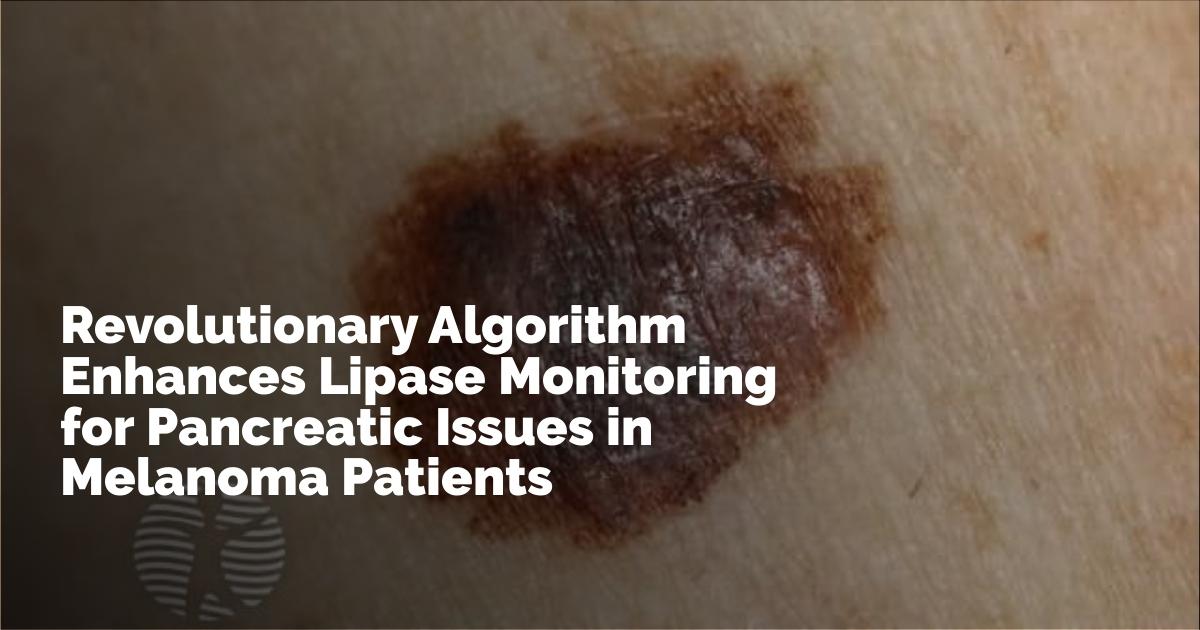New Developments in Managing Immune Checkpoint Inhibitor-Induced Pancreatic Injury in Melanoma Patients
In the evolving landscape of cancer therapy, immune checkpoint inhibitors (ICIs) have emerged as a revolutionary approach in the fight against melanoma. These therapies, while offering hope for long-term remission, are not without their challenges. A recent study led by researchers in Austria and Switzerland highlights a specific concern—immune checkpoint inhibitor-induced pancreatic injury (ICIPI)—and suggests a refined approach to monitoring patients effectively.
Insights from a Multi-Center Study
The study involved 1,516 patients undergoing treatment with ICIs across different centers in Austria and Switzerland between 2017 and 2020. Its primary focus was the occurrence of ICIPI, a rare but potentially serious adverse event associated with ICI therapy. Despite its low incidence rate of 0.5% to 3%, ICIPI poses significant risks if left undetected, particularly due to the possibility of pancreatic insufficiency.
The researchers aimed to demystify the clinical progression and management strategies for ICIPI by analyzing existing medical records. They concentrated on patients who exhibited lipase levels 1.5 to 2 times above the normal range following ICI treatment, regardless of whether symptoms were present.
Key Observations and Findings
One of the critical findings from the study was that 23.1% of the patients experienced some form of lipase elevation, with 13.5% meeting the criteria for thorough evaluation. The combination therapy of ipilimumab and nivolumab was notably linked to the highest rate of lipase elevation, affecting 49.5% of those treated.
Interestingly, most patients (79.9%) with elevated lipase levels were asymptomatic, though those who did present symptoms were more frequently associated with severe degrees of lipase elevation. Moreover, management outcomes revealed that nearly half of the patients with significant lipase elevation halted or interrupted their treatment, and corticosteroids were prescribed to a majority of them. However, while steroids helped normalize lipase levels, they were not particularly effective in accelerating recovery.
Of note, there were no recorded instances of long-term pancreatic insufficiency or mortality directly attributed to ICIPI, suggesting that with appropriate management, even severe cases can be controlled effectively.
Diverse Practices and Proposed Protocols
The study unearthed considerable variation in how ICIPI was managed across different institutions. While symptomatic patients typically underwent radiographic imaging, practices regarding asymptomatic CTCAE grade II° and III° elevations varied significantly, ranging from therapy continuation to temporary disruption. The use of glucocorticoids also differed, with consensus on their administration only in grade III° and IV° cases.
Despite existing guidelines, the frequent use of imaging in asymptomatic patients suggests potential overutilization of these diagnostic tools. In response, the researchers proposed a standardized management algorithm. This framework advocates for selective lipase monitoring, reduced imaging to cases with strong clinical indications, and judicious use of systemic steroids, especially in symptomatic or radiographically confirmed cases of pancreatitis.
Understanding the Background and Research Methodology
The central role of ICIs in treating melanoma stems from their ability to boost the immune system's response against tumor cells. However, this heightened immune activity can also lead to immune-related adverse events like ICIPI. Common manifestations of this condition range from mild asymptomatic lipase elevations to severe symptoms reminiscent of acute or chronic pancreatitis, including abdominal pain and jaundice.
This retrospective study was meticulously designed to shed light on the real-world management and outcomes of ICIPI. The criteria for inclusion hinged on documented elevations in lipase levels following the commencement of ICI treatment, ensuring a comprehensive analysis of patient responses.
Concluding Reflections
This study significantly enhances our understanding of ICIPI and calls for a reevaluation of routine practices, emphasizing the importance of targeted monitoring of pancreatic enzymes. It is crucial, especially for patients undergoing combination ICI therapy, to balance the benefits of early detection with the potential drawbacks of over-testing.
The researchers acknowledge the study's limitations, such as its retrospective nature and variability in data collection methods, and stress the need for further research. By probing the underlying pathological mechanisms behind asymptomatic enzyme elevations, future studies could pave the way for more finely tuned clinical practices.
In summary, while ICIPI remains a relatively rare side effect in melanoma treatment, its potential severity necessitates a cautious and informed approach. The insights gleaned from this study guide future strategies to optimize patient safety and treatment efficacy in this complex therapeutic area.
출처 : Original Source

